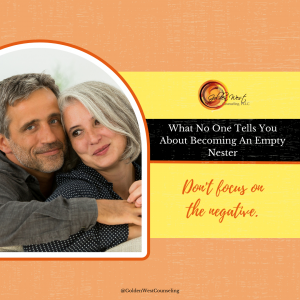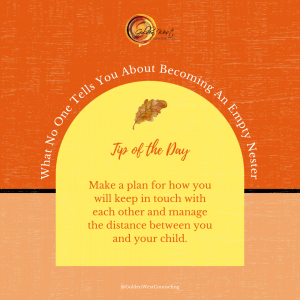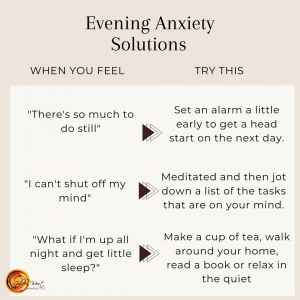What No One Tells You About Becoming An Empty Nester
Don’t worry! It’s not all bad news

What does having an “Empty Nest” mean?
“Empty nest syndrome” as they call it, refers to the distress and other complicated emotions that parents often experience when their children leave home.
This empty nest syndrome that many parents of adult children experience is not a clinical disorder or diagnosis, it actually reflects the emotional ambivalence of a normal life transition period.
Parents may end up feeling lonely, sad, and have some degree of grief when their children leave the nest, whether it’s to live on their own or start a college career, or pursue their own relationships.
Of course, people want their children to grow up and lead independent lives, it can definitely be bittersweet and emotionally challenging for you!
Whether you still have your babies at home or you’re getting ready for that transition in your life, here are a few things they DON’T tell you about becoming an Empty Nester

Don’t focus on the negative
While parents often focus on the negative and emotional aspects of their child leaving the nest, this time in your life can actually open the door to so many new possibilities!
Without the numerous obligations of caring and raising another human being, you can take this time and redefine who you are and what you want to do for the rest of your life, and start dedicating your time to your own career or areas of interest!
Not to mention it’s also an amazing opportunity to renew your marital bond with your spouse, explore new adventures together, but we’ll get to that!
For those struggling, here are a few tools that can help such as having self-compassion and gratitude, thinking positive, expressing feelings and reaching out for support when you need it.
Exercising, practicing mindfulness, and being kind to others are also healthy outlets during stressful times.
What can you do before your child leaves?
Let’s think of this as an “exit interview” super funny and it adds humor to this process!
Open up the lines of communication and lay the foundation for the next stage of your parent-child relationship, ask them about their thoughts and feelings on the family-dynamic, all the positives and negatives!
Discuss what went well as they were growing up and what they feel could’ve gone better. Try to understand any concerns with an open mind about their response to the family dynamics.
Lastly, make a plan for how you will keep in touch with each other and manage the distance between you and your child. Setting boundaries from the beginning will set your relationship up for success!

Adjusting to the new normal
Whether it’s a short visit or a longer stay, your child is still learning how to adapt to this new life transition, they may need your help!
It’s super important to remember that they are also experiencing their own transition and learning how to manage their lives, independently.
It can be comforting for your child to think of home as a stability in life. You can help with this transition by introducing your child to any new physical changes at home, sharing what you can about your new normal.
Find ways to spend quality time with your child, maybe telling stories about family traditions or common interests.
Ultimately, keep up with your new routines and prioritize intimacy with your partner and bonding with family.
Some unexpected benefits
I know, I know! How could there be benefits? Especially when your child is fresh out of the house, it can be hard to think about anything else!
Empty nesters now have the freedom to update or renew their own identities as individuals and depending on the quality of the parents’ relationship, they may enjoy increased intimacy while taking the time to explore much needed shared or separate interests you previously may not have had time for!
Establishing new hobbies is now easier since you don’t have to work around your child’s schedule, it’s about you and your spouse again.
Take this opportunity to focus on yourselves, take a cooking class, yoga class or even take a bike ride by the beach!
There are no more excuses for not having time for yourself or your spouse!

Some days will be harder than others
If you and/or your spouse need someone to talk to during this difficult transition, Golden West Counseling is here to help, we tailor to your specific needs by understanding your thoughts, emotions, reactions and environmental factors, we can create ways that will help you cope and adapt to changes in your life.
Transitions are a part of life. They are a time of opening up to understanding yourself more and an opportunity to strengthen your inner self.
Click the link below to view our website!






